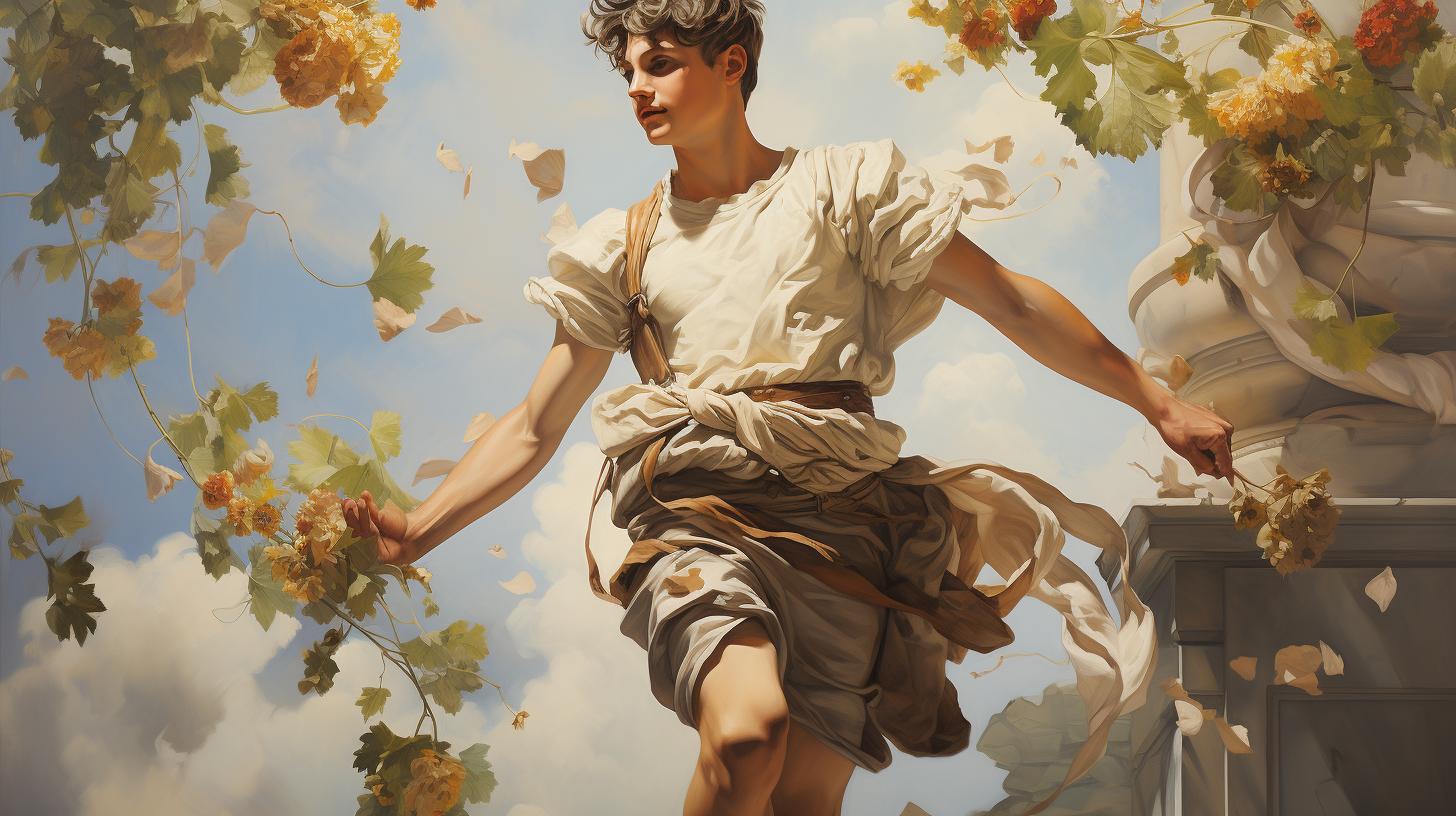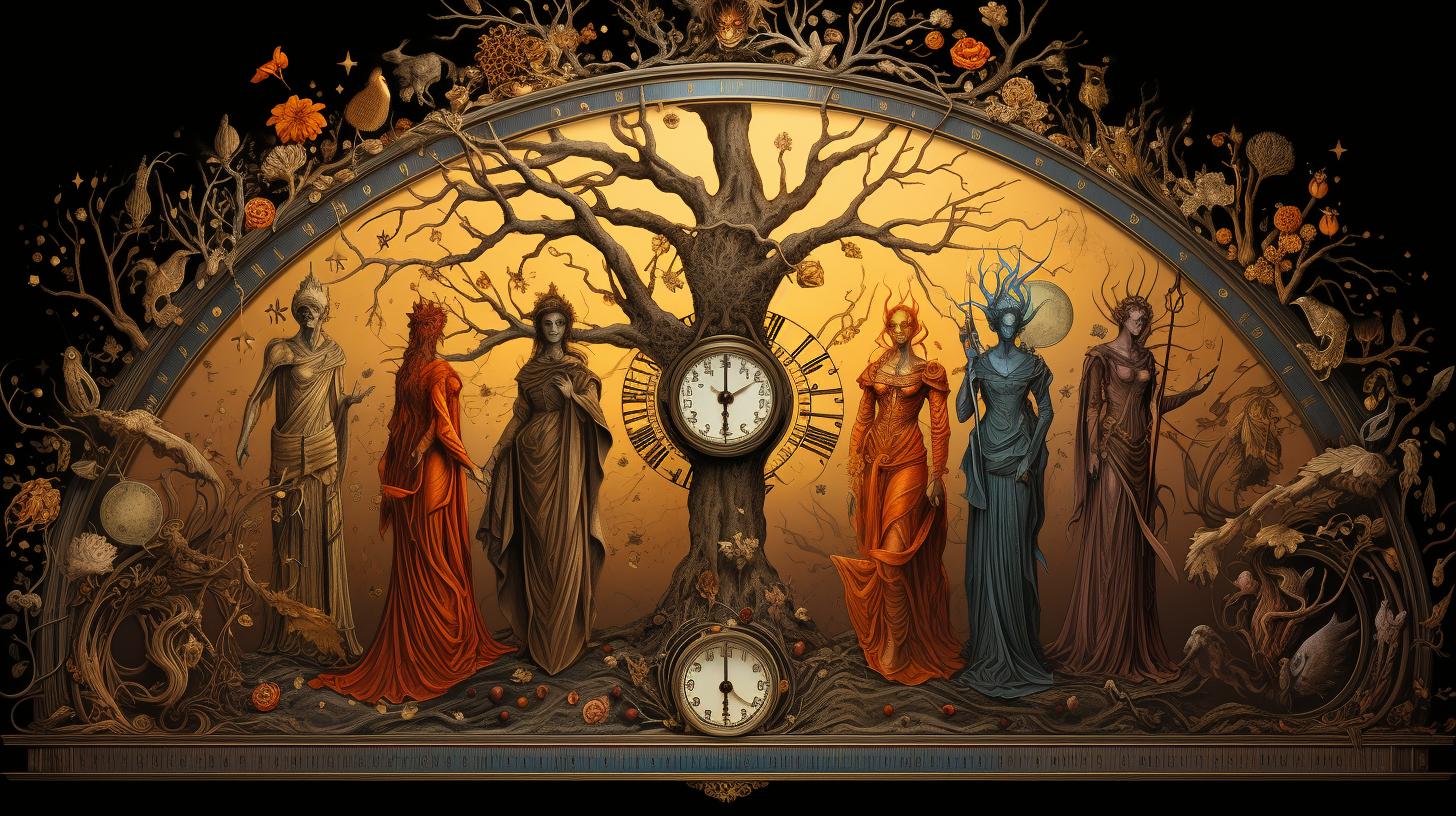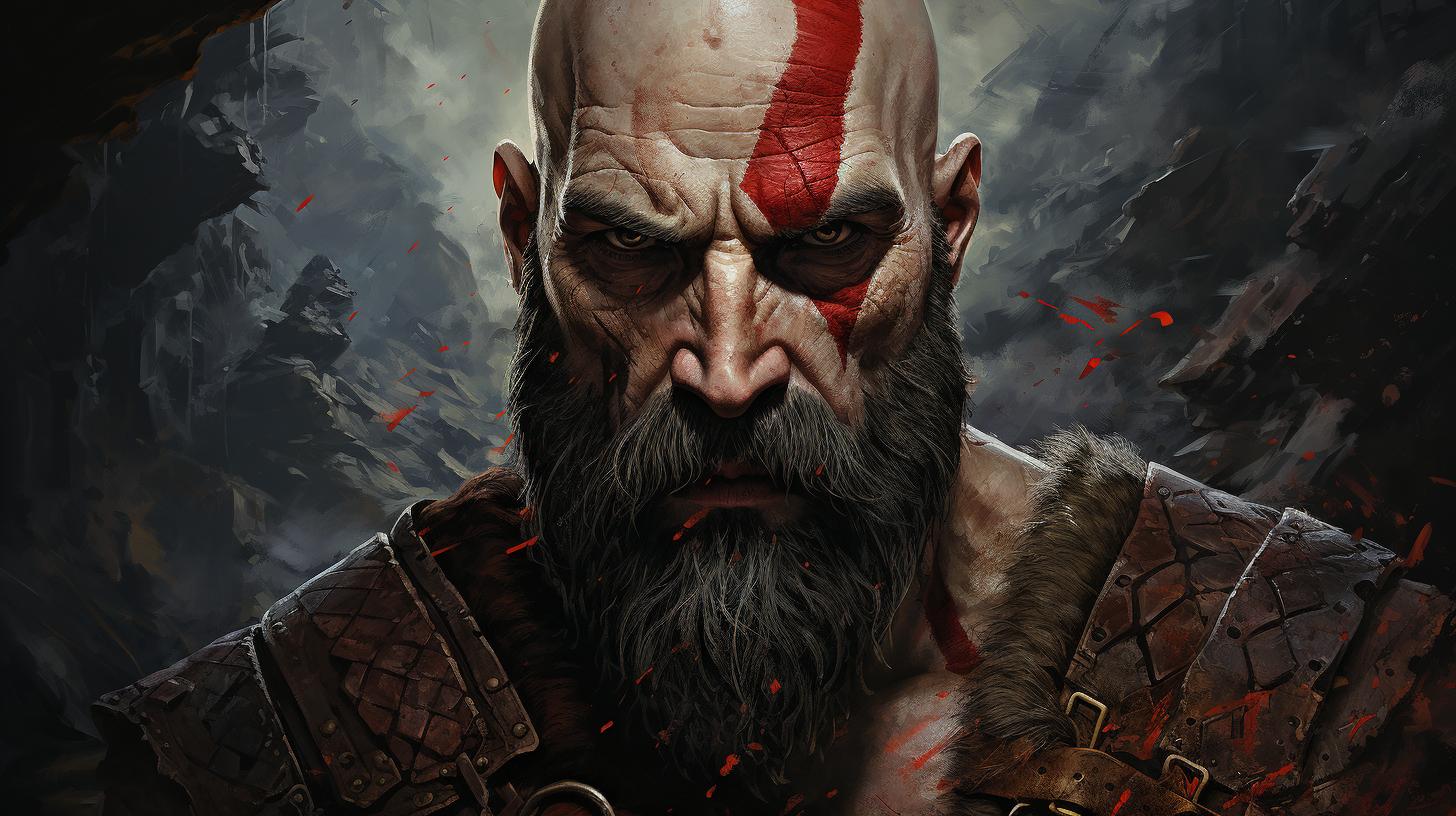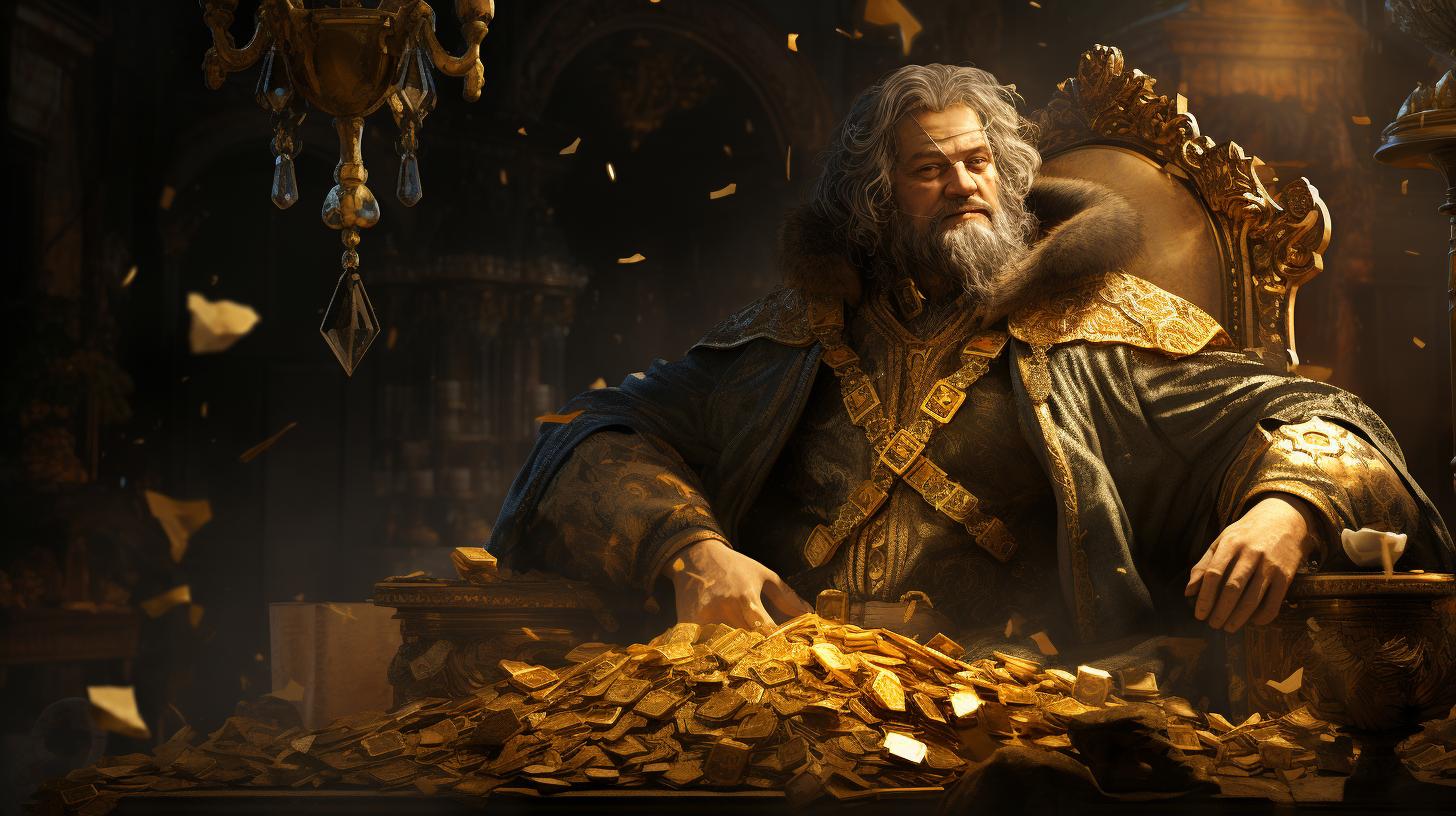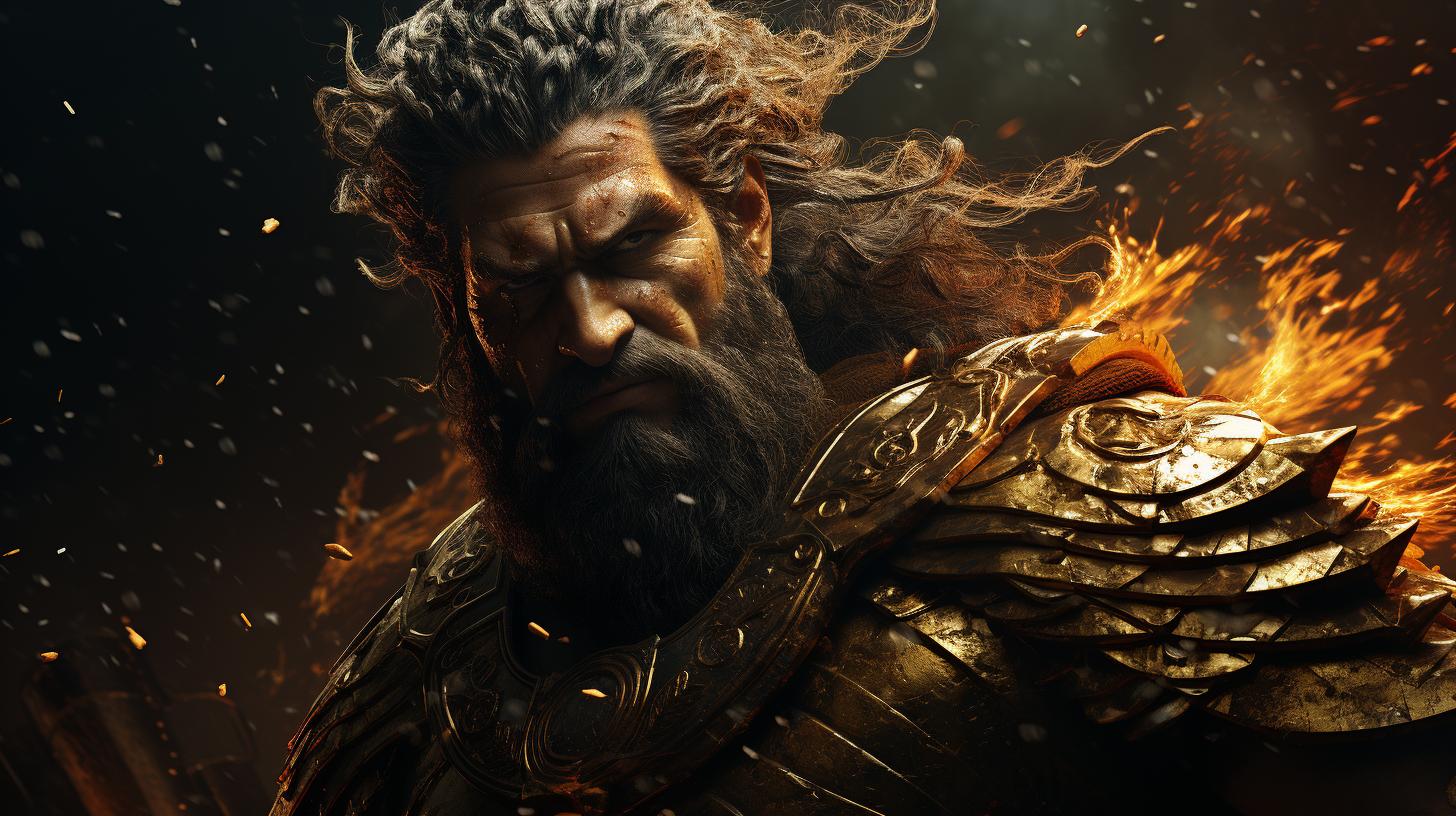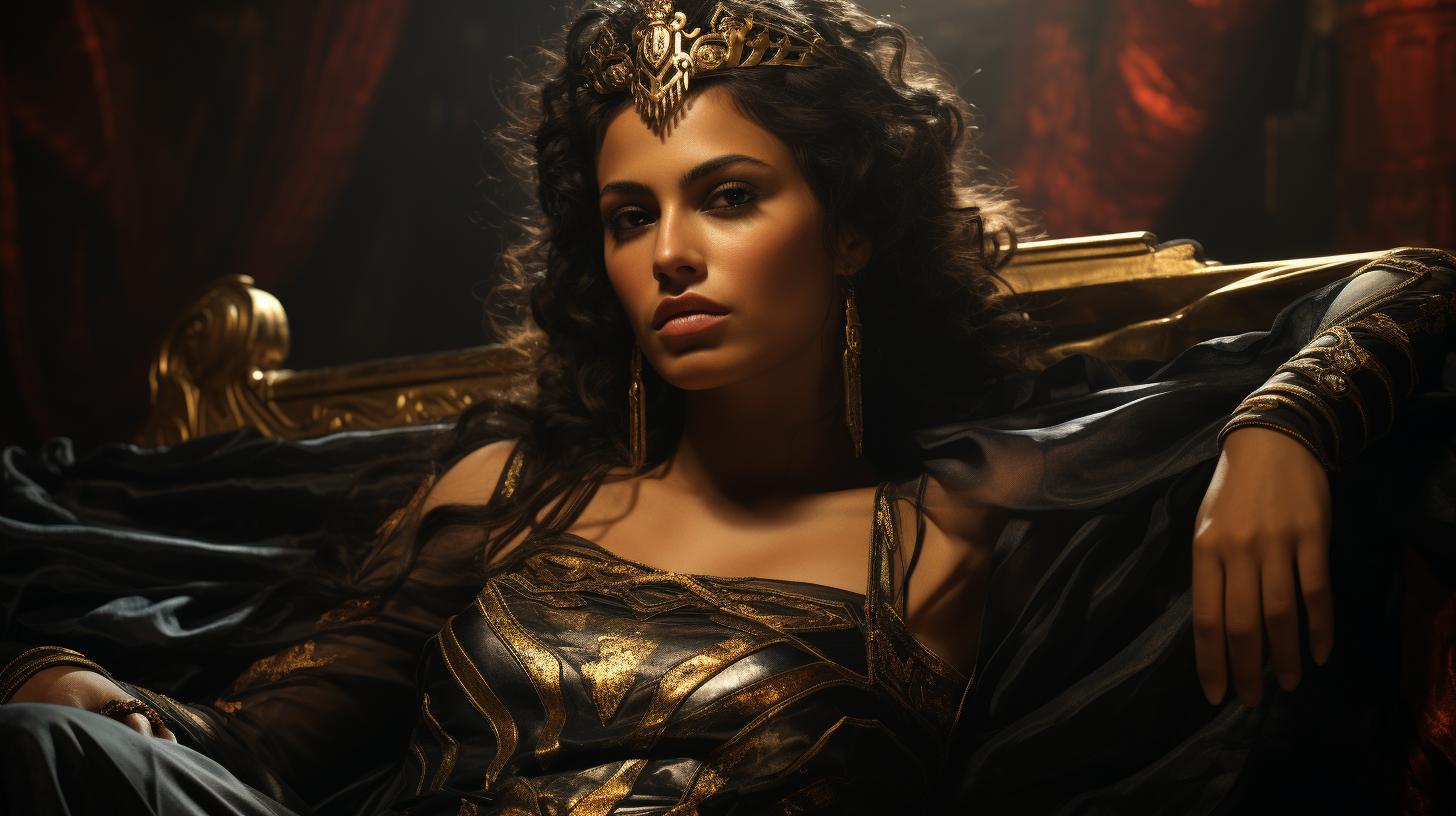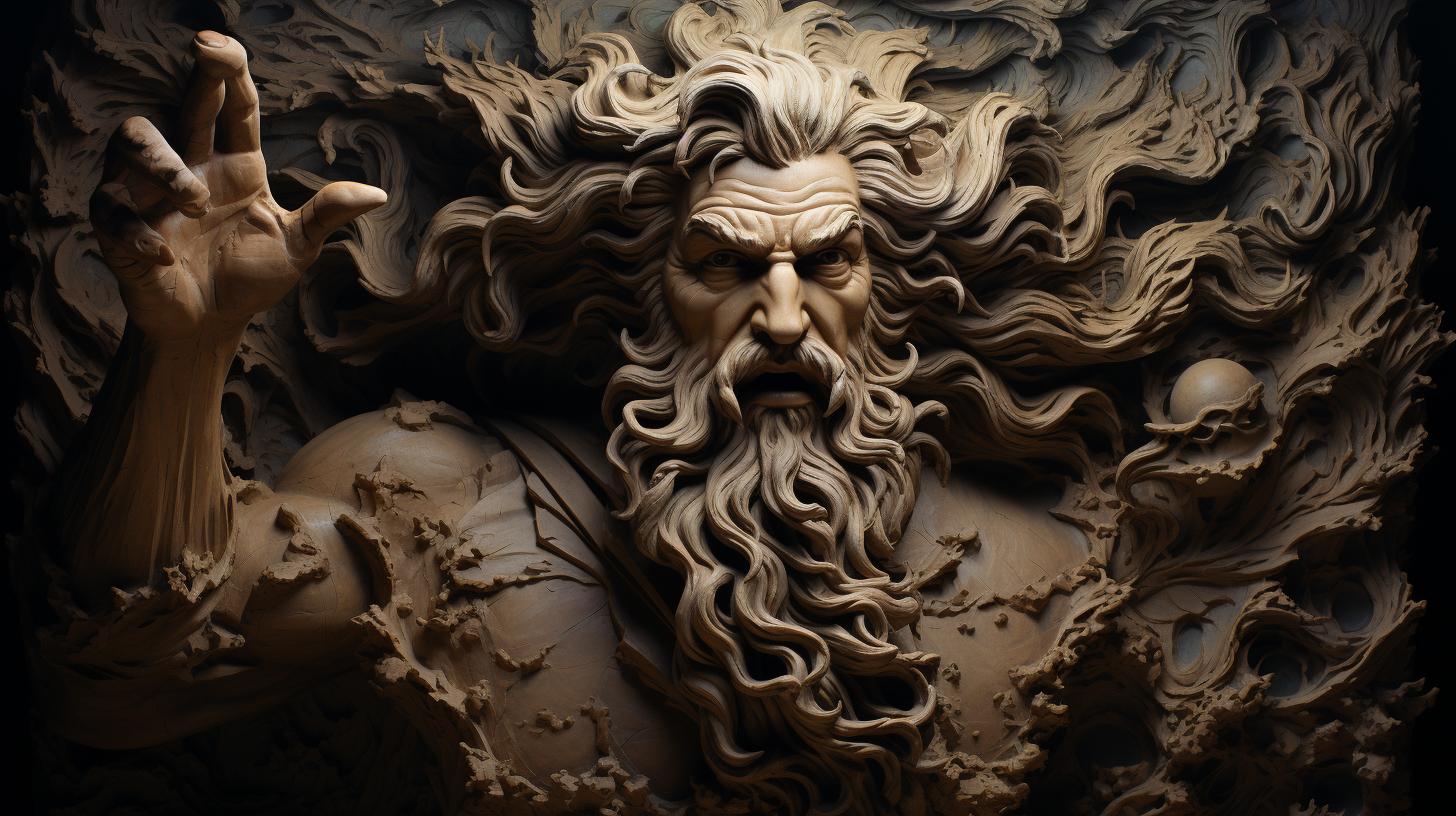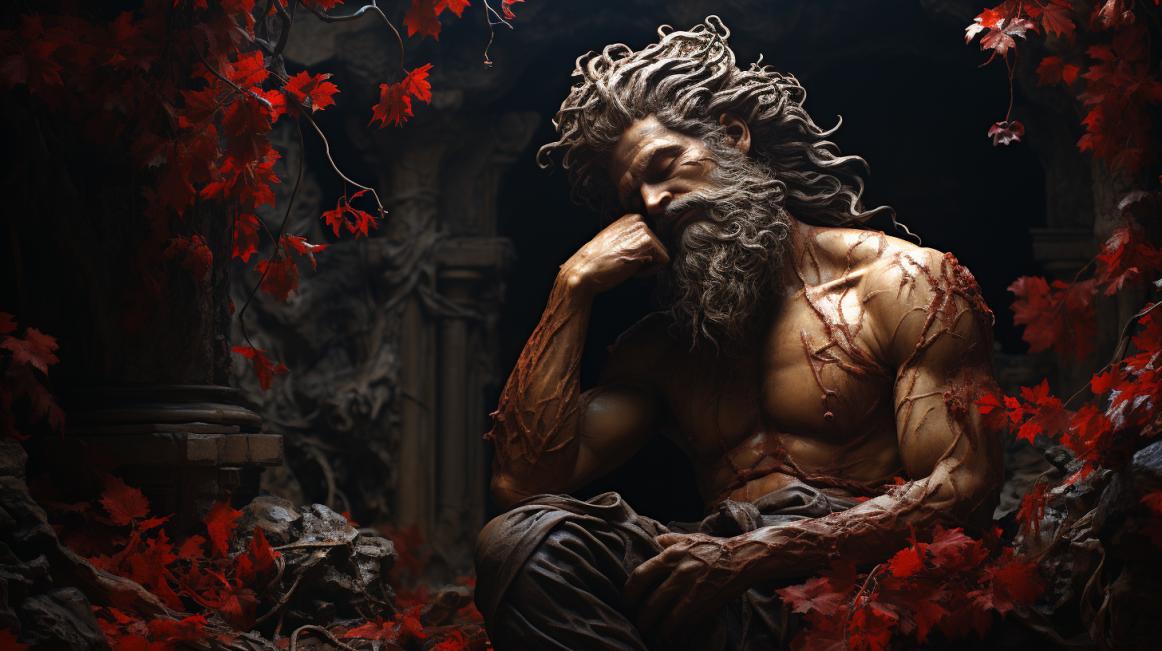Unveiling the Power and Influence of Caerus, the Greek God of Opportunity and Luck
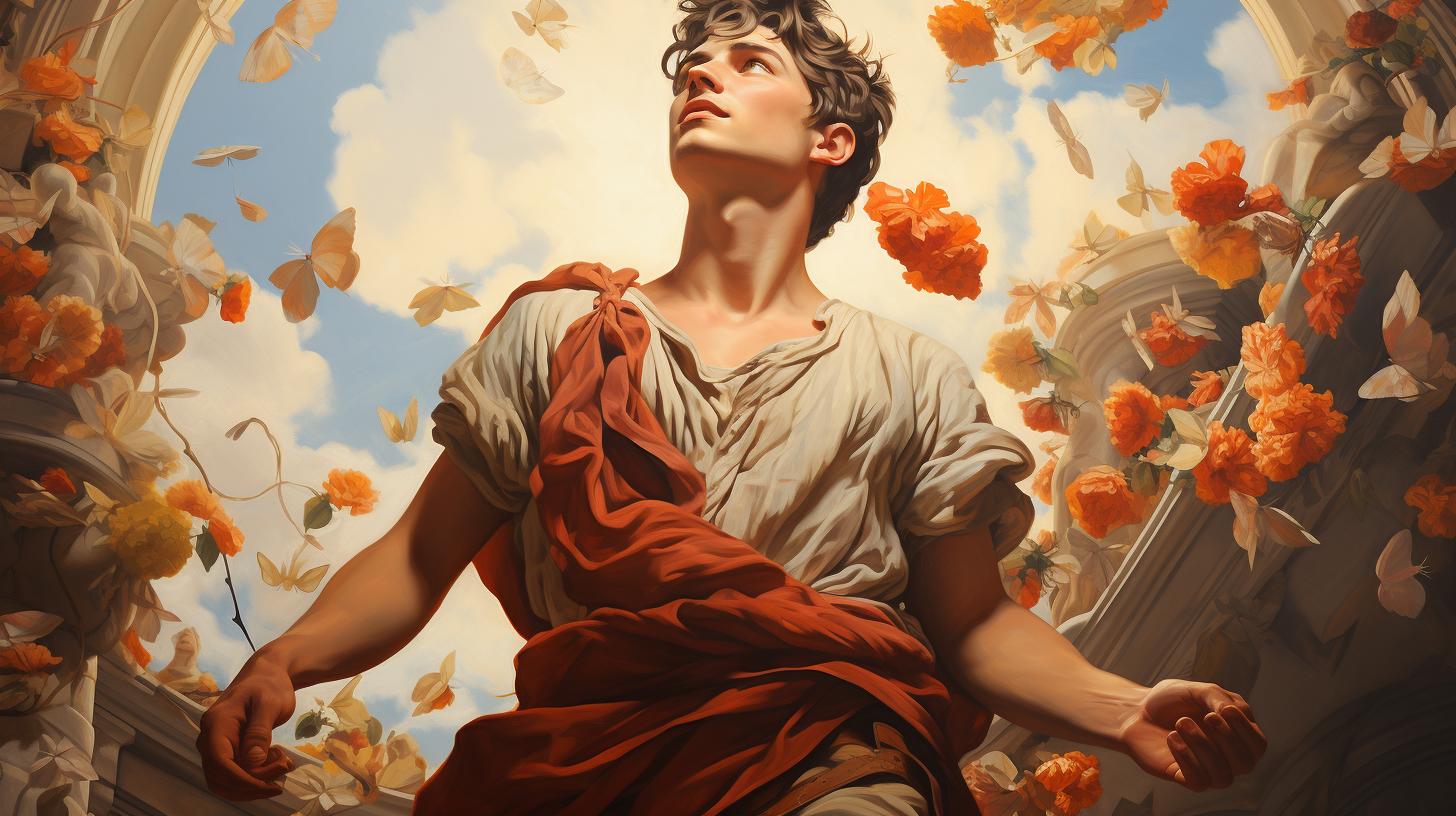
The Greek god Caerus, also known as Kairos, holds a significant role in mythology as the deity of opportunity and luck. Presented as a youthful and attractive figure with a distinctive lock of hair falling on his forehead, Caerus embodies the timely measure that brings about favorable outcomes.
With wings on his feet, holding a balance and a blade, Caerus symbolizes the fleeting nature of opportunities. Worshipped in ancient Greece and Rome, Caerus is often associated with Tyche, the goddess of fortune and prosperity.
Explore the captivating realm of Caerus, where moments of opportunity and chance take center stage.
The Mythological Origins of Caerus: Exploring the Greek God of Opportunity and Luck
Caerus, the Greek god of opportunity and luck, holds a prominent role in Greek mythology, embodying the concept of favorable moments and serendipity. As we delve into Caerus’ mythological origins, we will uncover the different names and representations associated with this enigmatic deity.
Additionally, we will explore the pronunciation variations of Caerus, specifically focusing on the phonetic nuances of the name “Kairos.”
The Role of Caerus in Greek Mythology
Within Greek mythology, Caerus plays a vital role as the divine embodiment of favorable moments. Often depicted as a young and beautiful deity, Caerus possesses the power to bring about success and good fortune through auspicious occasions.
As we examine Caerus’ divine attributes, we will gain insights into the significance of his representation and the impact he had on the lives of mortals.
Different Names and Representations of Caerus
Throughout history, Caerus has been known by different names and represented in various ways across different regions and cultural contexts.
These diverse appellations and visual depictions of Caerus provide a deeper understanding of how this god of opportunity was perceived and worshiped by ancient civilizations. By exploring these variations, we can unravel the multiple facets of Caerus’ character.
Kairos Pronunciation: Understanding the Phonetic Variation
The pronunciation of Caerus as “Kairos” adds another layer of complexity to our exploration of this Greek deity. By delving into the phonetic variation and linguistic nuances, we can grasp the significance behind the name “Kairos” and its impact on the perception and interpretation of Caerus.
Understanding these variations will enhance our understanding of the god of opportunity and luck.
Unveiling the Essence of Caerus: Decoding the God of Opportunity
Caerus as the God of Favorable Moments and Serendipity
Caerus, the Greek god of opportunity, holds a prominent role in mythology as the deity responsible for favorable moments and serendipitous events. He represents those elusive occasions when everything falls into place, offering individuals a chance for success and fulfillment.
Caerus embodies the concept of seizing the right moment, encouraging mortals to recognize and embrace these opportune times. Whether it is stumbling upon a prosperous business venture or finding true love, Caerus symbolizes the potential for life-changing experiences that arise when we are open to the unexpected.
Interpreting Caerus as a Symbol of Critical Moments and Peril
However, Caerus is not solely associated with positive outcomes. His influence extends to critical moments and perilous situations as well. Just as opportunities bring the promise of success, they also carry the risk of failure or danger.
Caerus reminds us that timing is crucial – seizing an opportunity without considering the consequences can have dire repercussions.
Caerus serves as a reminder to approach moments of importance with caution and thoughtful consideration.
His balanced portrayal acknowledges the delicate nature of decision-making and conveys the need for a measured approach to seizing opportunities.
Exploring Caerus’ Attributes and Symbolism: The Balancing Act
Caerus is often depicted holding a balance, a powerful symbol that encapsulates his essence. This balance represents the delicate equilibrium between seizing an opportunity and avoiding rash or impulsive actions. It serves as a reminder that we must weigh our options carefully and make informed choices.
With his wings on his feet, Caerus signifies the need for swift action and decisiveness when presented with an opportunity. His ability to move quickly suggests that favorable moments are fleeting, requiring us to act promptly before they vanish.
As we delve deeper into the essence of Caerus, we uncover the intricate symbolism behind this god of opportunity. His attributes and representations guide mortals in understanding the delicate nature of seizing moments and embracing the power of luck.
Through Caerus, we are reminded to approach opportunity with mindfulness, balancing the lure of chance with the need for careful consideration.
Caerus and Tyche: The Dynamic Duo of Opportunity and Fortune
The symbiotic relationship between Caerus, the Greek god of opportunity, and Tyche, the goddess of fortune, is a captivating aspect of Greek mythology.
Explore how these two deities come together to shape the destiny of mortals, offering a fascinating interplay of opportunity and luck.
Caerus and Tyche’s Relationship in Greek Mythology
In Greek mythology, Caerus and Tyche are portrayed as a dynamic duo, embodying the interconnectedness of opportunity and fortune. Their relationship highlights the intertwined nature of luck and timing and their direct influence on people’s lives.
The Interplay between Caerus and Tyche: A Divine Partnership
The synergy between Caerus and Tyche results in a powerful partnership that governs the ebb and flow of favorable moments and good fortune. Together, they hold the key to unlocking serendipitous encounters and prosperous outcomes for mortals.
Unraveling the Influence of Caerus and Tyche in Mortals’ Lives
The influence of Caerus and Tyche extends beyond the realm of myth and into the lives of mortals. They shape the course of events, influencing the timing and outcomes of pivotal moments, and bestowing both favorable and challenging circumstances upon individuals.
The Worship of Caerus: Tracing Ancient Devotion
Caerus as a Deity of Worship in Ancient Greece and Rome
In the ancient civilizations of Greece and Rome, Caerus held a significant place as a deity of worship. He was revered as the god of opportunity and luck, with people seeking his favor and guidance in their endeavors.
Devotees of Caerus believed that he had the power to bring favorable moments and serendipitous events into their lives. His role as a divine figure was not merely symbolic but deeply ingrained in the religious practices of the time.
Altars and Sculptures Dedicated to Caerus
The devotion towards Caerus found expression in the form of altars and sculptures dedicated to him. These sacred places served as sites of veneration and prayer, where worshippers offered their supplications and sought his blessings.
Altars dedicated to Caerus could be found in various locations, including temples, public spaces, and even private households. These physical embodiments of devotion were a testament to the importance and reverence bestowed upon Caerus by the ancient Greeks and Romans.
Caerus’ Connection to Other Greek Gods and Goddesses
Caerus had a unique relationship with other Greek gods and goddesses, particularly with Tyche, the goddess of fortune. Together, they formed a dynamic duo representing the control of opportune moments and luck in the lives of mortals.
Caerus’ interactions with other deities demonstrated the interconnectedness of various divine powers in the mythological realm. The worship of Caerus not only involved reverence for his individual attributes but also acknowledged his place within the divine pantheon of ancient Greek and Roman mythology.
Caerus in Art and Literature: Depictions throughout History
Art and literature have long been platforms for depicting and exploring the intriguing figure of Caerus, the Greek god of opportunity and luck. Through the ages, Caerus has been portrayed in various art forms and has inspired countless mythological narratives.
This section delves into the different ways in which Caerus has been depicted and represented throughout history, encompassing ancient Greek and Roman art, mythological literature, and the influence of Caerus on artistic expression in the Middle Ages.
Caerus’ Portrayal in Ancient Greek and Roman Art
Ancient Greek and Roman art offers valuable insights into the visual representation of Caerus. Artists of the time often portrayed Caerus as a youthful and graceful figure, with his characteristic lock of hair falling onto his forehead.
Often depicted on tiptoes with wings on his feet, Caerus symbolizes the fleeting nature of opportunity and the need for swift action. Artists used various mediums, including sculpture, pottery, and painting, to capture Caerus’ essence and communicate his significance in Greek and Roman culture.
Caerus’ Representation in Mythological Literature
Mythological literature showcases the rich storytelling surrounding Caerus. In ancient Greek and Roman mythology, Caerus is frequently mentioned in narratives that center around moments of opportunity and luck. The tales often explore the dual nature of Caerus, who can bring both favorable and perilous moments.
Mythological authors skillfully weave Caerus’ appearances into their stories, highlighting his role in shaping the destiny of mortals and the consequences of seizing or missing opportune moments.
Caerus’ Influence on Artistic Expression in the Middle Ages
During the Middle Ages, Caerus continued to exert influence on artistic expression, albeit in a different context. While ancient Greek and Roman art predominantly focused on Caerus’ physical representation, the Middle Ages witnessed a shift towards metaphorical and symbolic depictions.
Artists explored the concept of opportunity and timing through allegorical imagery, often incorporating Caerus as a central figure. These artistic interpretations reflected the broader societal fascination with divine intervention and the significance of seizing favorable moments during this period.
The artistic and literary depictions of Caerus throughout history bear witness to the lasting impact of this Greek god. From ancient artwork to mythological narratives and the evolution of artistic expression, Caerus’s portrayal serves as a reminder of the timeless relevance of opportunity and timing in human existence.
Caerus in Modern Interpretations: Relevance and Adaptations
Caerus, the Greek god of opportunity and luck, continues to hold significance in contemporary culture and society. His portrayal and symbolism have found their way into various forms of artistic expression, literature, media, and everyday language.
Caerus’ Role in Contemporary Culture and Society
In modern culture, Caerus is often associated with the concept of seizing the moment and making the most of favorable opportunities. His concept of timing and seizing the opportune moment has become a popular notion in self-help books, motivational speeches, and personal development discussions.
Moreover, Caerus’ attributes of balance and measuring the right timing have influenced the field of decision-making and strategic planning. The idea of considering the right moment to act and the potential outcomes based on favorable or critical circumstances has become an essential aspect in various industries and professional sectors.
Analyzing Caerus’ Influence in Literature and Media
Caerus’ symbolism can be observed in literary works and media, where the concept of opportunity and timing plays a significant role. Authors and filmmakers often utilize Caerus’ characteristics to depict moments of tension, critical decision-making, or unexpected turns of events.
Through literature and media, Caerus’ influence expands beyond Greek mythology and permeates various genres, including fiction, fantasy, and even suspense thrillers. It serves as a reminder of the unpredictability of life and the importance of recognizing and seizing opportunities when they arise.
Examining Metaphorical Usages of Caerus in Everyday Language
The influence of Caerus extends to everyday language usage, where his name and symbolism are used metaphorically to describe moments of opportune timing or missed chances. Expressions like “seizing the Caerus,” “being at the right Caerus,” or “letting Caerus slip through your fingers” allude to the fleeting nature of opportunities and the significance of taking action at the right moment.
Furthermore, Caerus’ portrayal as a young and elusive god mirrors the concept of elusive opportunities in life. People often use Caerus’ name metaphorically to describe situations where success or favorable outcomes are determined by seizing the right moment.
- The concept of Caerus is integrated into the corporate world, where executives and entrepreneurs emphasize the importance of recognizing opportune moments for business decisions and ventures.
- In personal relationships, individuals may refer to Caerus when describing the perfect moment to express feelings or take a significant step in a romantic relationship.
- In sporting events and competitions, athletes and fans may use Caerus’ name metaphorically to describe crucial moments, turning points, or game-changing opportunities.
Caerus’ symbolism and metaphorical usages in everyday language continue to affirm the timeless relevance and adaptability of this Greek god in contemporary society.
Unveiling the Legacy of Caerus: A Timeless God of Opportunity
Caerus’ Lasting Impact in Greek Mythology and Beyond
Caerus, the Greek god of opportunity and luck, has left an indelible mark on Greek mythology and extends his influence beyond ancient legends. Throughout the tales and stories of the Greek pantheon, Caerus appears as a pivotal figure, embodying the concept of seizing the right moment to achieve success and fortune.
His character serves as a reminder of the importance of recognizing and acting upon favorable opportunities.
Exploring the Lessons and Wisdom from Caerus’ Mythology
Caerus’ mythology offers invaluable lessons and wisdom for individuals seeking to navigate life’s twists and turns. By examining the stories and symbolism surrounding Caerus, we can gain insight into the significance of recognizing and making the most of fleeting opportunities.
His portrayal as a figure with wings on his feet highlights the swiftness required to seize those precious moments. Caerus teaches us to remain vigilant, ready to embrace favorable chances presented to us.
Caerus’ Relevance in the Contemporary World
Although rooted in ancient mythology, Caerus’ relevance transcends time and continues to resonate in the contemporary world. In a fast-paced society where timing and seizing opportunities are crucial, understanding and embodying the spirit of Caerus can lead to personal and professional success.
The concept of recognizing and capitalizing on the right moment is applicable in various aspects of life, be it in decision-making, career advancements, or personal relationships. Caerus reminds us of the power of being attuned to favorable circumstances and leveraging them to our advantage.
.











